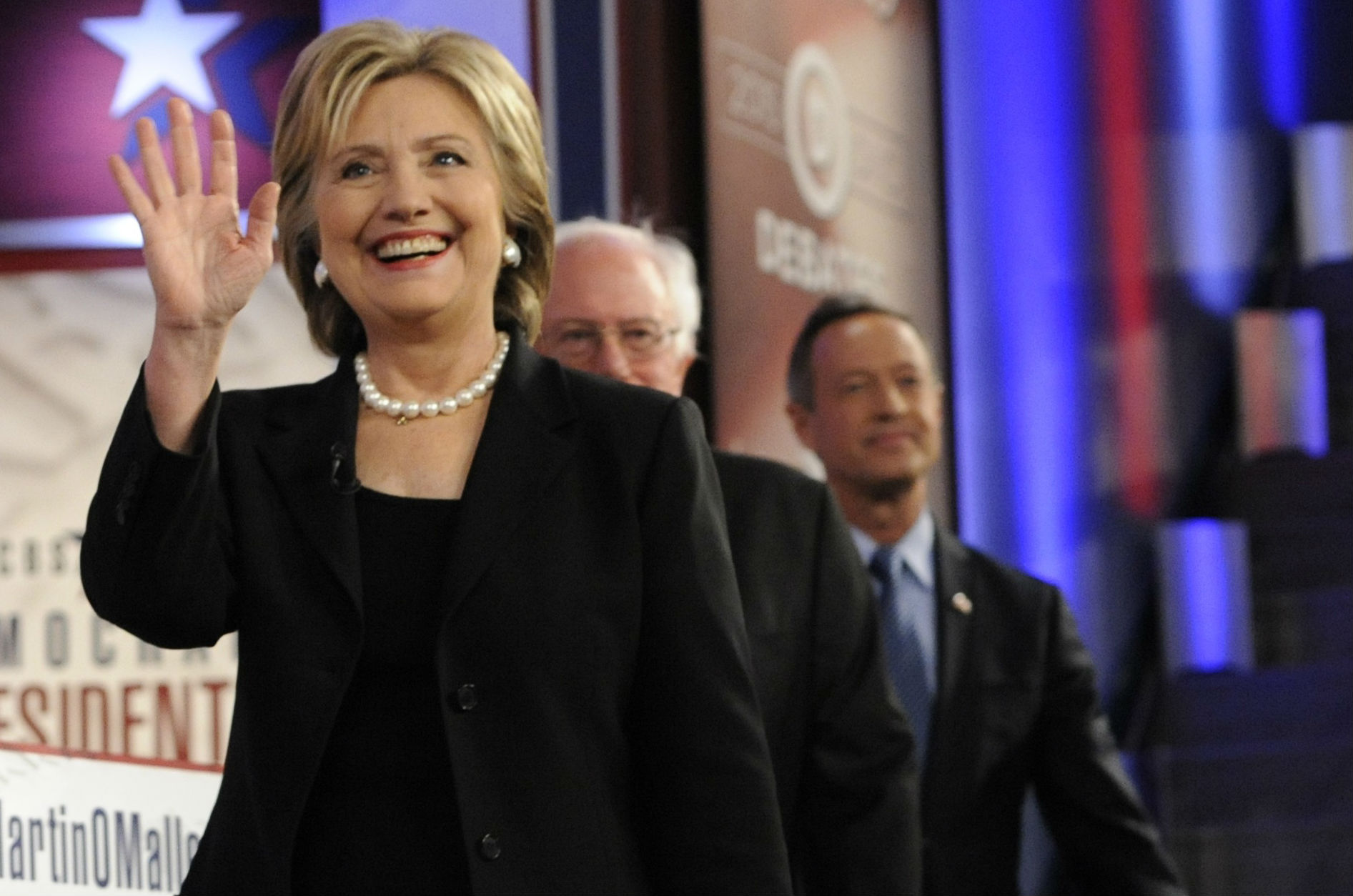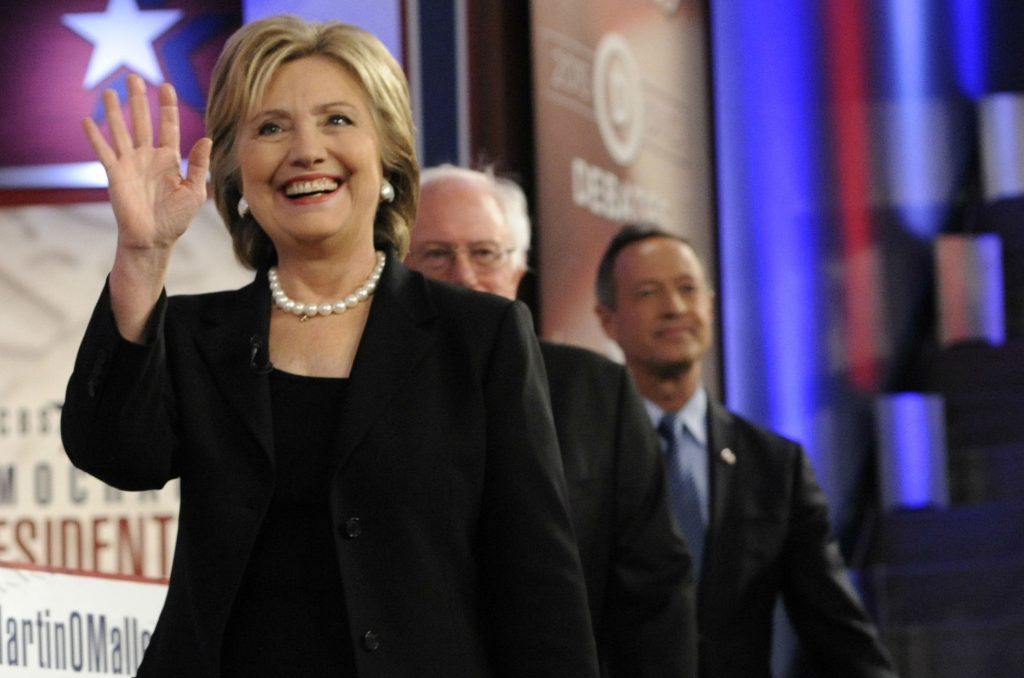
Foreign-policy challenges will keep the next commander-in-chief up late. Analysts focus on the threat that Islamic State poses to the United States and its allies, but the Putin problem is unlikely to fade. As the candidates gear up for the next round of debates—slated for December 15 and 19—it’s time to take stock of the threat the Russian strongman poses and what options the next commander-in-chief will have to respond.
Of all of the candidates, former Secretary of State Hillary Clinton is by far the most experienced candidate to negotiate a resolution with Moscow to end its proxy war with Ukraine. Though, one has to wonder if she would do any better than President Barack Obama in helping Ukraine resolve its geopolitical issues with Russia and mounting internal turmoil.
Much of what is keeping Ukraine from realizing a fruitful economic and political future can’t be negotiated from Washington. Moscow is strongly invested in seeing a weak Kyiv become even weaker. The challenge for the next President will be to prove to the American public that Ukraine is more important to America than it is to Russia.
That’s a tough argument to make, but a necessary one if the President is serious about integrating Ukraine into the West. Here’s what the candidates are contending with:
Ukraine’s GDP is expected to contract by as much as 11 percent by the end of 2015, partly due to Russia’s occupation of its territories. Russia has threatened to sue Ukraine over a $3 billion bond debt if it doesn’t pay by December 20. While we can persuasively argue that Russian aggression is the primary reason why Ukraine finds itself in such dire economic circumstances, internal issues independent of Moscow are hampering Kyiv’s prosperity. On December 8, Vice President Joe Biden challenged Kyiv to keep “corruption in the past.”
To be sure, the genesis of Ukraine’s economic downward spiral dates back to November 2013, when former Ukrainian President Viktor Yanukovych caved into Putin’s threats of economic reprisals if he signed the EU association agreement, a course most Ukrainians wanted. Even without Russian interference, Ukraine had issues that would have made it a challenge to integrate into Western institutions.
So, how should the next President address this situation?
The next President’s options may be as limited as his or her predecessors because of Russia’s influence, but there is plenty of room for aggressive diplomacy to fend off Moscow’s interference. The next President would have to convince the public that Ukraine is the guardian of European and, therefore, American security against an expansionist Russia under Putin. Many Americans have little context for Ukraine and how valuable a buffer it is for European and NATO security. Even after Senator John McCain’s best efforts to explain how important Ukraine is to American national security interests, most Americans don’t see the point of investing in Ukraine’s sovereignty, even though sixty-seven percent have an unfavorable view of Putin.
The next President must explain what is at stake for the United States if Moscow wins. For one, it would put a politically unstable state on the border of Poland, a NATO ally that the United States is bound to protect if attacked. Given Moscow’s expansionism in Ukraine and dangerous interference in Moldova, it is logical to argue that investing in Ukraine would be an investment in the United States’ overall geopolitical interests in Europe.
The President could also continue pressuring Moscow under the current Washington and Brussels-led sanctions. At the end of January, EU sanctions are set to expire but the West seems set to extend them. If Washington and Brussels continue sanctions throughout 2016 and Russia does not withdraw its troops from Ukraine, the President could call for sanctions that hit Russia’s energy sector hard. For example, he or she could work with his or her counterparts in Brussels to ensure that technology needed for Russia’s energy projects isn’t sold to the country. With Brussels help, he or she could target all of Putin’s rich allies with interests in the energy sector by cutting off access to loans that would fund their projects. According to a report by the Wall Street Journal, western sanctions have hampered Russia’s ability to fund a $27 billion Arctic Circle project because Beijing has been slow to fill the void with financing it would have secured from Europe.
Such targeting needs to be expanded to convince Moscow to keep its hands off of Ukraine. The real question is if the next President will have the political will push Russian sanctions to their limits when it comes to hurting Moscow’s energy sector. If Russia responds by cutting off energy to the EU, how would Washington help fill that void? Most importantly, is investing in Ukraine’s economic and political vitality worth it to American and European security? If it is, the next President better be ready to clearly articulate why, exactly, that is.
These are all questions that the next President would have to address if he or she were serious about punishing Moscow over its expansionism in Ukraine.
Terrell Jermaine Starr is a New York City-based journalist who writes regularly about Russian and Eastern European politics. He tweets @Russian_Starr.
Image: Democratic US presidential candidate former Secretary of State Hillary Clinton is followed on stage by Senator Bernie Sanders and former Maryland Governor Martin O'Malley (R) ahead of the second official 2016 US Democratic presidential candidates debate in Des Moines, Iowa, November 14, 2015. Credit: REUTERS/Mark Kauzlarich
